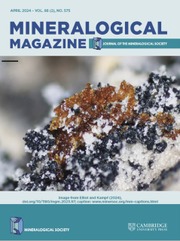Article contents
Towards an 'implementing geological disposal technology platform' in Europe
Published online by Cambridge University Press: 05 July 2018
Abstract
Several European waste management organizations have started work on creating a technology platform to accelerate the implementation of deep geological disposal of radioactive waste in Europe. There is an increasing consensus in the international community about geological disposal as the preferred option for solving the long-term management of spent fuel, high-level waste and other longlived radioactive wastes. At the same time, European citizens have a widespread desire for a permanent solution for high-level radioactive waste disposal. A majority of European countries with nuclear power have active waste-management programmes, but the current status and the main challenges of those programmes vary. The most advanced waste management programmes in Europe (i.e. those in Sweden, Finland and France) are prepared to start the licensing process of deep geological disposal facilities within the next decade. Despite the differences between the timing and the challenges of the different programmes, there is a joint awareness that cooperation on the scientific, technical and social challenges related to geological disposal is needed, and that it is beneficial for the timely and safe implementation of the first geological disposal facilities. Such a demonstration of a viable solution for the management of high-level radioactive waste will enhance stakeholder confidence in Europe. It is envisaged that a technology platform would enhance European cooperation in this area. The platform will provide a tool for reducing overlapping work, to produce savings in total costs of research and implementation, and to make better use of existing competence and research infrastructures. From 2008, SKB (Sweden) and Posiva (Finland) led the preparation work to set up the implementing geological disposal of radioactive waste technology platform (IGD-TP). Since then other implementers from France, Germany, Switzerland, United Kingdom, Spain and Belgium have joined the project. To date a strategic research agenda for the platform has been prepared and consulted upon, which is now the basis for taking the platform into a deployment phase.
- Type
- Research Article
- Information
- Creative Commons
- © [2012] The Mineralogical Society of Great Britain and Ireland. This is an open access article distributed under the terms of the Creative Commons Attribution (CC BY) licence (http://creativecommons.org/licenses/by/4.0/), which permits unrestricted use, distribution, and reproduction in any medium, provided the original work is properly cited.
- Copyright
- Copyright © The Mineralogical Society of Great Britain and Ireland 2012
References
- 2
- Cited by


